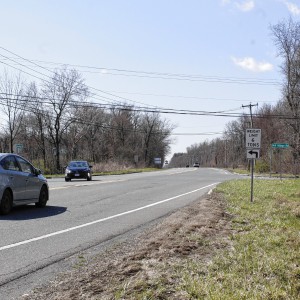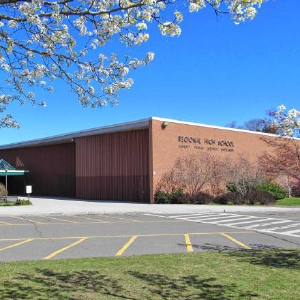Bill banning cellphone use advances in Legislature
| Published: 05-04-2017 7:45 PM |
NORTHAMPTON — New restrictions for drivers using cellphones inside a vehicle are a step closer to reality in Massachusetts.
The Massachusetts legislature's Joint Committee on Transportation has passed, by an 18-0 vote, a bill that, if approved by the House and Senate, would make it illegal to hold a cellphone to make a call, access social media or use any camera functions on the phone.
A law is already on the books in Massachusetts that bans texting and driving, though critics say that law doesn’t go far enough to address the problem of distracted driving.
“There’s a lot of momentum, we need people engaged,” state Sen. Eric Lesser, D-Longmeadow, said of the push to strengthen distracted-driving laws. “This is a good step but it’s sort of the first step.”
Fines for running afoul of the law would be $100 for the first offense, $250 for the second and $500 for each subsequent offense.
There are exemptions from the law for police, firefighters and first responders on the job, and for drivers performing one tap or swipe to activate, deactivate or initiate a function on the phone.
Drivers can also use their cellphones if there is an emergency, but the burden will be on them to produce evidence that the phone was being used for that purpose.
Lesser, who is on the transportation committee, said the next step will be a full vote in the House and Senate. A similar bill cleared the Senate last year, but never made it through the House.
Article continues after...
Yesterday's Most Read Articles
 South Hadley man fatally shot in attempted robbery
South Hadley man fatally shot in attempted robbery
 Smith College exhibit explores Sylvia Plath’s botanical inspiration
Smith College exhibit explores Sylvia Plath’s botanical inspiration
 Holyoke man finds bear paw in his yard
Holyoke man finds bear paw in his yard
 Guest columnist Bill Dwight: How to make sense of Northampton’s school budget dilemma
Guest columnist Bill Dwight: How to make sense of Northampton’s school budget dilemma
 South Hadley’s Lauren Marjanski signs National Letter of Intent to play soccer at Siena College
South Hadley’s Lauren Marjanski signs National Letter of Intent to play soccer at Siena College
 Deerfield residents petitioning to fix ‘dangerous’ intersection
Deerfield residents petitioning to fix ‘dangerous’ intersection
“My hope is that we can do it again very quickly,” Lesser told the Gazette.
That urgency comes amid increasing attention to the dangers consumer technologies create for drivers — a problem that continues to frustrate government, public health and law enforcement officials.
Although data on distraction-related crashes and deaths are notoriously difficult to track, the fuzzy picture that has emerged from efforts thus far has troubled many.
In 2015, the country saw the largest nationwide spike in fatal crashes in 50 years. That same year, a distracted driver was involved in 21 percent of the 291 fatal crashes in Massachusetts, according to National Highway Traffic Safety Administration data.
Similar statutes banning the handheld use of devices have already passed in the neighboring states of Connecticut, New Hampshire, New York and Vermont.
Dusty Christensen can be reached at dchristensen@gazettenet.com.

 Amherst regional district towns seek middle ground on school increase
Amherst regional district towns seek middle ground on school increase Leverett Town Meeting voters will decide cease-fire call, budgets, town elections
Leverett Town Meeting voters will decide cease-fire call, budgets, town elections  A Look Back: April 22
A Look Back: April 22 Regional farming alliance strengthens educational, networking opportunities for apprentices
Regional farming alliance strengthens educational, networking opportunities for apprentices
